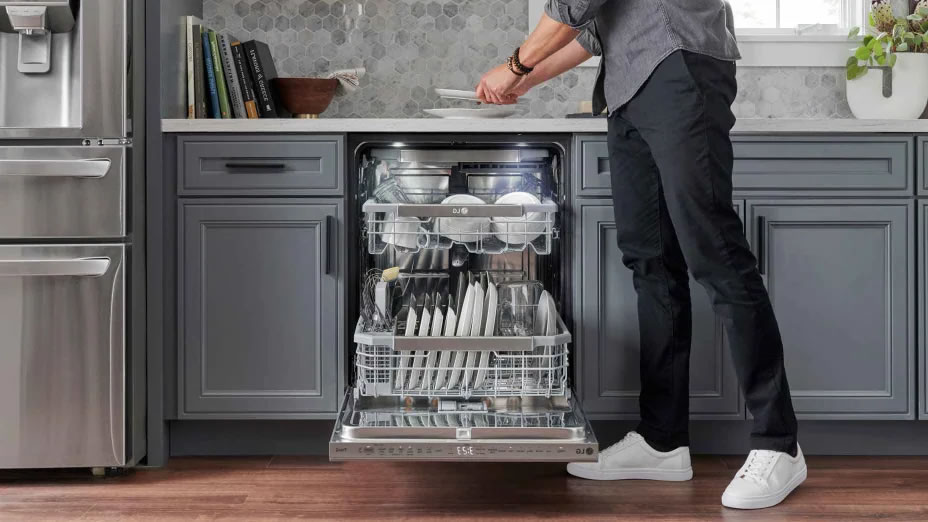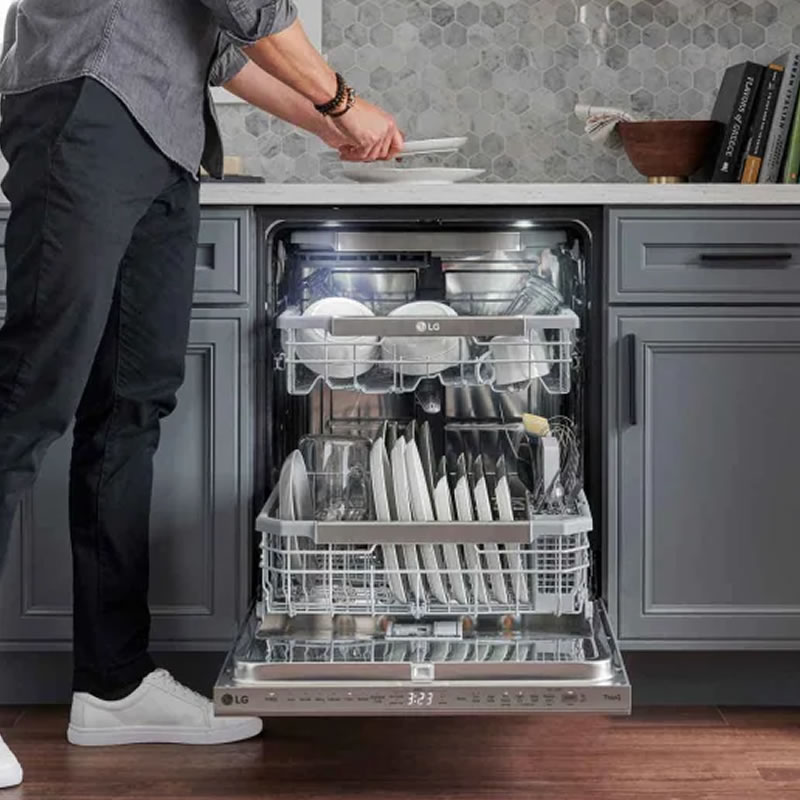Why Are Your Dishes Still Dirty?
A Simple Guide to Dishwasher Tablets vs. Powders
The dishwasher is supposed to make life easier, right? But sometimes, when you open the door, your dishes still look dirty — cloudy glasses, leftover food, or strange white spots. It’s frustrating, and it might be happening because of the detergent you’re using.
There are two main types of dishwasher detergent: tablets and powders. Both aim to clean your dishes, but they work in different ways. This guide explains why your dishes might not be coming out clean and helps you decide which detergent is better for your needs.
Why Your Dishes Might Still Look Dirty
Before choosing between tablets and powders, let’s look at some common reasons your dishwasher may not be cleaning well:
-
Hard water: Water with too many minerals can leave white spots or a cloudy layer on dishes and glasses.
-
Wrong amount of detergent: Too little won’t clean enough. Too much can leave behind soap or streaks.
-
Bad loading: If dishes are packed too tightly, water can’t reach everything.
-
Clogged parts: Food or minerals can block the spray arms or filters.
-
Water not hot enough: Hot water is important for melting grease and activating the detergent.
-
Old or wrong detergent: Detergents lose strength over time or may not match your water or dish type.
-
No rinse aid: This helps water slide off your dishes and prevents spots and streaks.
Once you’ve ruled out those problems, the next step is choosing the right detergent.

Dishwasher Tablets: Easy and Powerful
Dishwasher tablets (also called pods or packs) are solid blocks that contain detergent and often rinse aid and other helpful ingredients.
Pros:
-
Very easy to use: Just drop one in — no measuring.
-
Always the right amount: No risk of too much or too little.
-
Multi-action: Many tablets clean, remove stains, prevent spots, and help dry dishes all at once.
-
No mess: No powder to spill.
-
Better for hard water: Many tablets fight hard water stains better than basic powders.
Cons:
-
More expensive: Tablets cost more per wash.
-
Less flexible: You can’t change the amount for small or lightly soiled loads.
-
Sometimes don’t fully dissolve: Some low-cost tablets leave residue if cycles are short or water is too hard.
-
Packaging waste: Some tablets come in plastic wrap (though many now use dissolvable or recyclable wrappers).
Dishwasher Powder: Cheaper and Adjustable
Dishwasher powder is loose and measured by hand. It usually contains only cleaning ingredients unless you buy a version with rinse aid included.
Pros:
-
Lower cost per wash: Good for tight budgets or frequent use.
-
Adjustable dose: You can use more or less depending on the size and dirtiness of the load.
-
Available in bulk: Saves money and packaging.
-
Less plastic: Often packed in cardboard boxes.
Cons:
-
Easy to mess up: Using the wrong amount can cause poor cleaning or leftover detergent.
-
Messy: Powder can spill or dust.
-
Might need extras: You may need to buy rinse aid or water softener separately.
-
Can clump: If it gets damp, the powder can harden and become hard to use.
Which One Should You Choose?
It depends on what matters most to you:
| Situation | Best Choice |
|---|---|
| You want fast and easy cleaning with no guesswork | Tablets |
| You want to save money and adjust the amount each time | Powder |
| You have hard water | Premium Tablets or powder with water softener |
| You care about the environment | Powder in cardboard or tablets with dissolvable wraps |
More Tips for Cleaner Dishes
Even the best detergent won’t help if your dishwasher isn’t working well. Here are a few more things to check:
-
Load properly: Don’t block the spray arms. Put the dirtiest dishes on the bottom.
-
Use rinse aid: Even if your tablet includes it, adding extra can help prevent water spots.
-
Clean the machine: Wash the filter, spray arms, and seals regularly.
-
Check your water temp: Make sure your hot water is set to 120–140°F (49–60°C).
-
Use a water softener: If you have very hard water, a softener for the whole house might help.
Final Thoughts: Get Sparkling Dishes Every Time
Dirty dishes can be annoying, but with the right detergent and a few smart habits, your dishwasher can do a great job.
-
Tablets are great for ease and consistency.
-
Powder works well if you want to save money and adjust your use.
Think about what matters most to you — cost, ease, water type, and environmental impact — and choose what fits best.
When you also clean your machine, load it right, and use rinse aid, your dishes will finally come out clean, clear, and ready to use!




